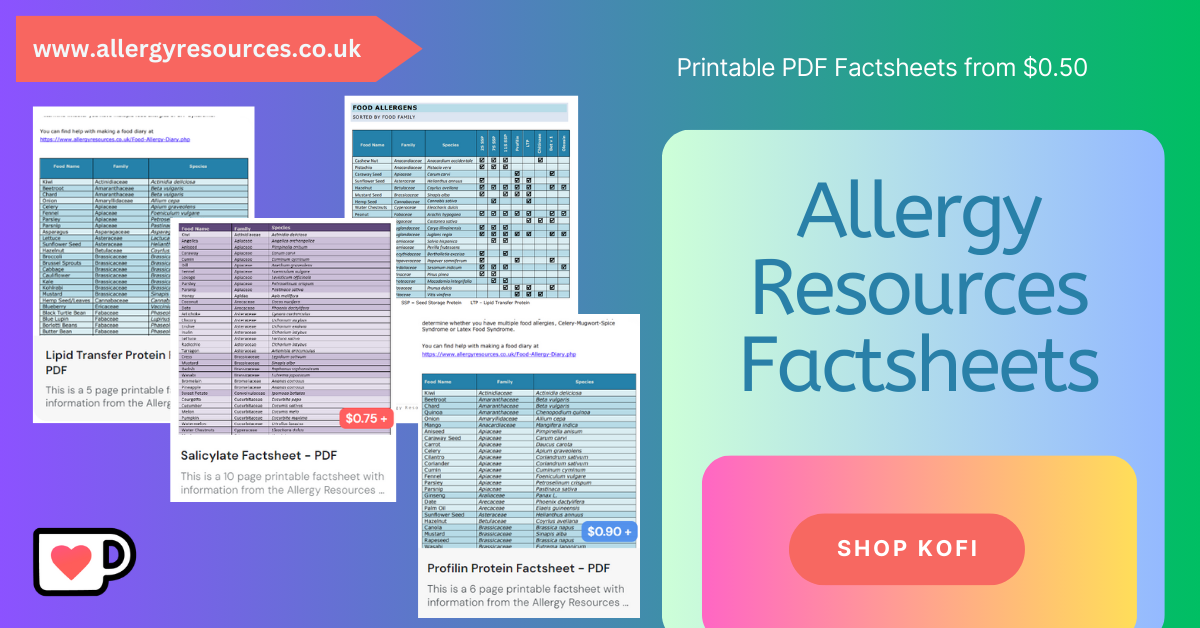
LOTUS SEED ALLERGY
Key Allergens
Lotus seeds are the edible part of the lotus plant. They are in the Nelumbonaceae family of plants which are aquatic. Lotus seeds are high in Vitamin B and protein and are commonly used in traditional Chinese medicine.
The roots and flowers of the lotus plant are also edible and used in traditional medicine.
Parts of the plant contain gibberellin regulated proteins.
One of the proteins in lotus seeds has been categorised as Pru ar 1-like, which is a Bet v 1 protein. These proteins can be responsible for oral allergy type symptoms, which is also sometimes called Pollen Food Allergy Syndrome. Cooking or freezing foods that contain these allergens can damage them and stop them from causing allergic reactions.
The roots and flowers of the lotus plant are also edible and used in traditional medicine.
Parts of the plant contain gibberellin regulated proteins.
One of the proteins in lotus seeds has been categorised as Pru ar 1-like, which is a Bet v 1 protein. These proteins can be responsible for oral allergy type symptoms, which is also sometimes called Pollen Food Allergy Syndrome. Cooking or freezing foods that contain these allergens can damage them and stop them from causing allergic reactions.
Food Intolerances




If lotus seed is preserved it can be high in sulphites. Sulphites are inorganic salts used in preservations and have the potential to cause symptoms of food intolerance to those sensitive to sulphites, this food intolerance is more common in asthmatics. An improvement in symptoms can be made with a change to a low sulphite diet.
Lotus seeds are a low FODMAP food. FODMAP stands for Fermentable oligosaccharides, disaccharides, monosaccharides and polyols. Foods high in FODMAPs can cause symptoms of food intolerance, affecting the gastro intestinal system and this can be mistaken for a true IgE food allergy.
Lotus seeds are also low in salicylates. Salicylates have the potential to cause worsening of asthma, swelling, itching and hives as well as food intolerance symptoms in people who are sensitive to salicylates.
Lotus seeds to contain a moderate amount of lectins, another cause of food intolerance. Cooking foods with lectins makes them more digestible and can reduce the symptoms of food intolerance.
You can read more about Food Intolerances on the dedicated Food Intolerance Page.
Associated Syndromes
Lotus root has been linked to Pollen Food Allergy Syndrome. The symptoms of this are called oral allergy symptoms and affect the lips, nose, mouth, throat and tongue. Generally these symptoms are mild and will go away with antihistamine.
Cross Reactivity
Other foods which contain gibberellins include chilli, orange, cherry, apricot, peach and pomegranate.
Other foods which contain Bet v 1 include soyabeans, peanut, celery, mung beans, tomato, raspberry, pear, peach, cherry, apricot, apple, strawberry, carrot, chicory and kiwi.
Note these food lists are not exhaustive, you can find the most up to date information on the Cross Reactivity Tool.
Other foods which contain Bet v 1 include soyabeans, peanut, celery, mung beans, tomato, raspberry, pear, peach, cherry, apricot, apple, strawberry, carrot, chicory and kiwi.
Note these food lists are not exhaustive, you can find the most up to date information on the Cross Reactivity Tool.
Resources
Websites
FODMAP Everyday - Low FODMAP Foods
Articles and Journals
Lotus seeds (Nelumbinis semen) as an emerging therapeutic seed: A comprehensive review, 2021
Pollen-Food Allergy Syndrome in Korean Pollinosis Patients: A Nationwide Survey, 2018
Characteristic and functional properties of Thai lotus seed (Nelumbo nucifera) flours, 2017
AAAAI - Possible Reaction to Lotus Seed, 2013
Let me know if you found any of these interesting or useful.
If you spot an article or research that you think is interesting you can message me or tag me on Facebook, Instagram or Twitter - links at the bottom of the page.